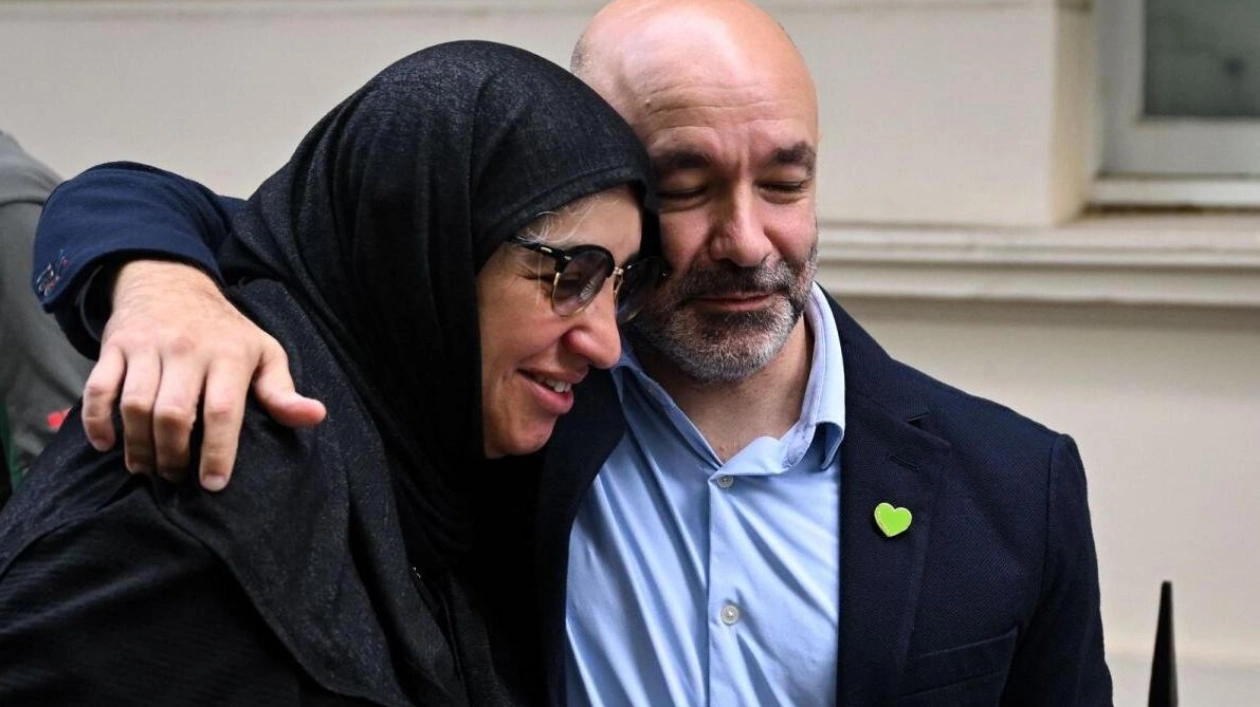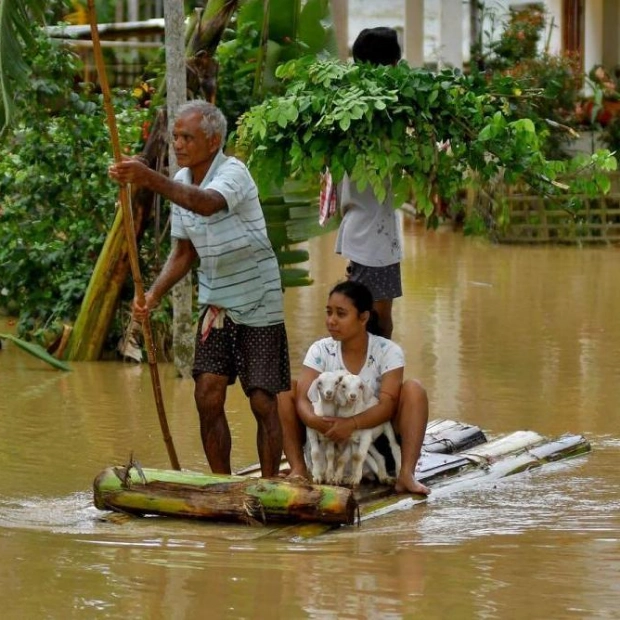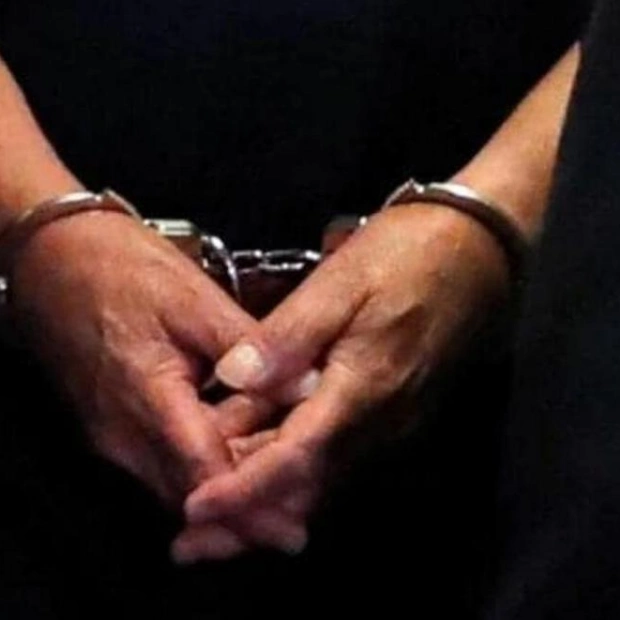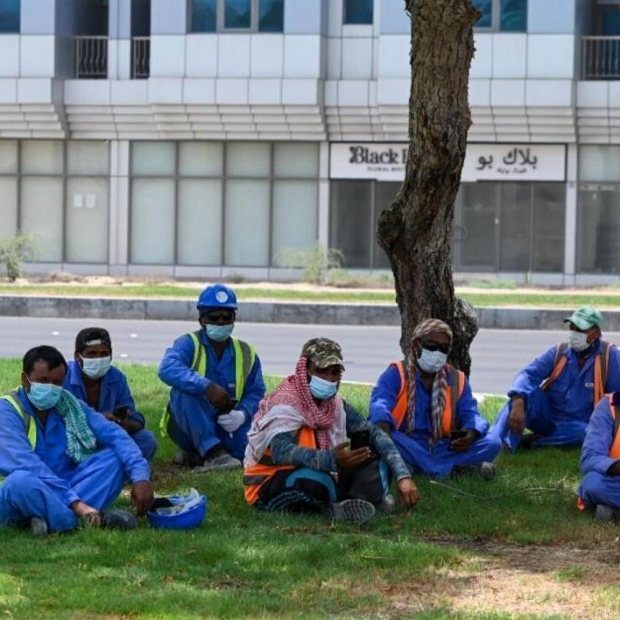A public inquiry into the catastrophic 2017 Grenfell Tower fire in London on Wednesday attributed the disaster to failures by the government, the construction industry, and primarily, the companies responsible for installing flammable cladding on the building's exterior. The fire, which engulfed the 23-story social housing block in one of west London's wealthiest areas in the early hours of June 14, 2017, resulted in 72 fatalities. This marked Britain's deadliest residential fire since World War Two.
"The reality is that all the deaths could have been prevented," stated inquiry chair Martin Moore-Bick. The long-awaited final report from the inquiry primarily held the companies involved in the tower's maintenance and renovation, as well as local and national authorities and firms that falsely marketed combustible cladding as safe, accountable for the disaster. The report also criticized the government at the time, the Kensington and Chelsea local authority, the industry, regulatory bodies, specific individuals, and a poorly prepared fire brigade for years of neglect regarding fire safety in high-rise buildings.
"Not all parties share equal responsibility, but as our findings indicate, each contributed to the disaster in some way, mostly through incompetence, but in some cases through dishonesty and greed," Moore-Bick added. The nearly 1,700-page inquiry report concluded that the blaze was the result of "decades of failure." Since the fire, survivors and relatives of the victims have called for criminal charges against those responsible.
"The government's duty is to protect lives and guard against corporate greed," said Grenfell United, a group representing survivors and bereaved families. "However, for too long, they have supported corporations, enabling them to profit and control regulations." Although the British police have identified 58 individuals and 19 firms and organizations for investigation, prosecutions, including those for corporate manslaughter and fraud, are expected to take years due to the complexity of the case and the need to review the inquiry's report.
Prime Minister Keir Starmer pledged that the government would thoroughly consider the inquiry's findings to prevent a similar disaster. An earlier 2019 report by the inquiry team, which focused on the night of the fire, identified an electrical fault in a refrigerator on the fourth floor as the initial cause. The fire then spread rapidly, primarily due to the tower's 2016 refurbishment, which included the application of flammable aluminum composite material cladding designed to enhance appearance and provide insulation.
The distressing accounts from those who perished while waiting for rescue and following official advice to stay indoors sparked national outrage and introspection about building standards and the treatment of low-income communities. The inquiry, led by retired judge Martin Moore-Bick, uncovered numerous failings; lessons from previous high-rise fires had not been learned, and testing systems were inadequate. The primary blame was directed at those involved in the tower's refurbishment with flammable cladding. The inquiry found that architect Studio E, principal contractor Rydon, and cladding sub-contractor Harley all bore significant responsibility for the disaster. Fire safety inspectors Exova were also blamed for leaving the building in a hazardous condition after the refurbishment. Both Kensington and Chelsea council and the Tenant Management Organisation (TMO), which managed the local authority's housing stock, were heavily criticized for their disregard of fire safety regulations in the years leading up to the blaze.
The TMO, whose strained relationship with some residents created a "toxic atmosphere," was overly focused on cost-cutting. While local community and voluntary groups were commended for their support, the council was criticized for its slow, disorganized, and "wholly inadequate" response to the incident. There was also condemnation for the firms that manufactured and sold the cladding or its foam insulation—Celotex, Kingspan, and Arconic Architectural Products, a French subsidiary of US company Arconic. The inquiry concluded that there had been "systematic dishonesty" on their part. "They engaged in deliberate and sustained strategies to manipulate testing processes, misrepresent tested data, and mislead the market," the report stated. Arconic rejected any claims that it sold an unsafe product or attempted to conceal information about its materials' tests. Kingspan acknowledged the "wholly unacceptable historical failings" but stated they were not the cause of the tragedy. The issue of exterior cladding has raised concerns across Europe, with similar fires in apartment blocks, such as in Valencia, Spain, in February, and in Italy in 2021. In Britain, government figures from July indicated that 3,280 buildings 11 meters or taller still had unsafe cladding, with remediation work yet to begin on over two-thirds of them.






